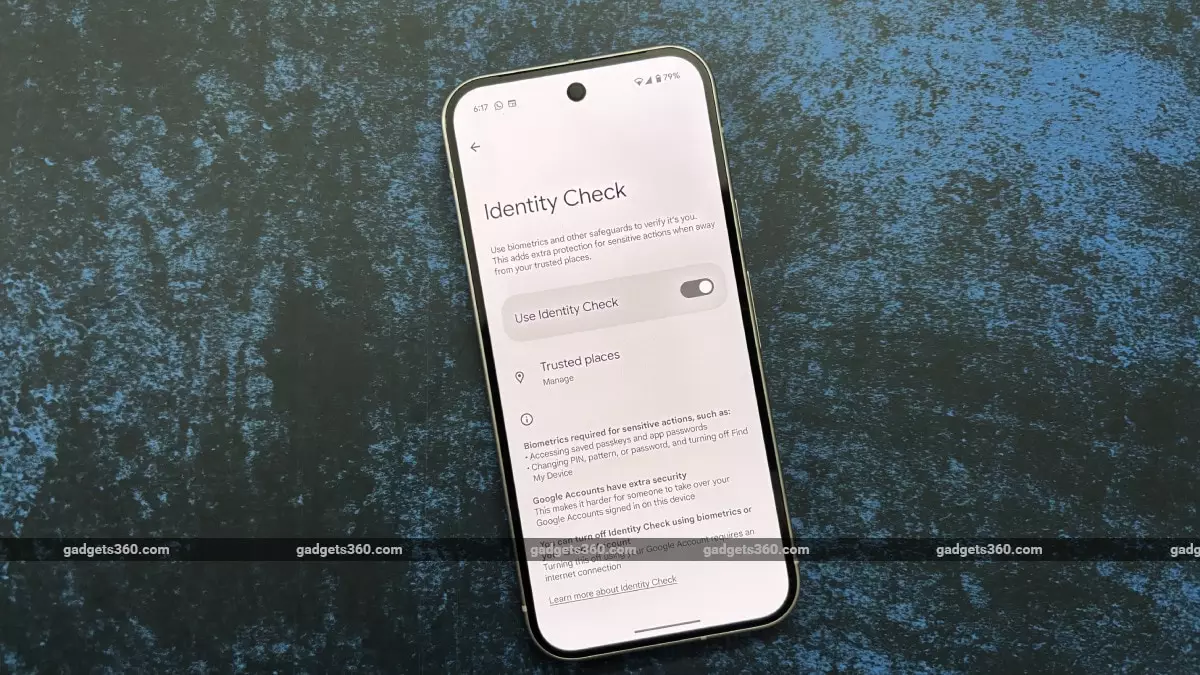The ongoing battle against technology-related crime presents a tremendous challenge in today’s digital landscape, where the theft of smartphones has implications far beyond the mere loss of a device. With valuable personal data and sensitive account information at stake, industry giants like Google are stepping up their game. The recent announcement regarding the expansion of Google’s Identity Check feature, which offers an innovative layer of protection for users, opens the door for a significant overhaul in how we secure our digital lives. This feature, now available on select devices and soon expanding to Android 16, poses a fundamental shift towards a more proactive approach to securing technology against theft.
Biometric Authentication: A Necessary Advancement
The adoption of biometric authentication has revolutionized the way users secure their devices, and Google’s effort to incorporate this technology into its Identity Check feature is not only exemplary but crucial. Unlike traditional passwords that can easily be stolen or guessed, biometric data provides a layer of security that is inherently personal. With features requiring fingerprint scans or facial recognition, the African proverb “it takes a village” rings particularly true; the village in this context includes tech companies, manufacturers, and users collectively working towards a secure digital environment. However, the requirement for devices to have class 3 biometric authentication raises questions. Will all Android smartphones satisfy this standard, or will certain demographics be left behind, unable to access this critical security measure? As Google rolls out this feature, it must ensure equitable access to protect the most vulnerable users.
Comparative Analysis: Android vs. iOS
One cannot discuss Google’s Identity Check without juxtaposing it with Apple’s recently introduced Stolen Device Protection feature. Apple’s strategy has consistently leaned towards user-centric design and robust security, a reputation they now cement with this upgrade. However, rather than viewing these innovations as direct competition, users should recognize that these enhancements represent a collective response to a growing crisis of digital insecurity. This healthy competition is vital for consumer protection; the more tech companies innovate, the more users benefit. The question remains: will the rivalry push Android devices to catch up significantly, or will it widen the technological gap that already exists?
Potential Drawbacks and User Concerns
Despite the promising advancements of the Identity Check feature, challenges lurk beneath the surface. Users may face inconvenience whenever they wish to alter critical settings, ultimately leading to frustration. While enhanced security is never a bad idea, an overly stringent system can feel burdensome, particularly for those who may not possess a strong understanding of technology. Moreover, the reliance on biometric data introduces its own vulnerabilities; the implications of hacking biometric systems can be catastrophic, leaving users exposed in ways that traditional passwords do not. Critics must weigh the practicality of this feature alongside its advantages to create a balanced perspective.
A Future-Oriented Perspective
Today’s technological landscape requires constant vigilance against threats that continuously evolve. Google’s commitment to rolling out the Identity Check feature across various Android devices exemplifies a proactive stance against theft and unauthorized access. However, the effectiveness of these security measures relies not only on their implementation but also on user education. Tech companies must prioritize adaptation and ensure users understand the importance and functionality of these features. The intersection of technology and personal security is a growing arena, and as pressures mount, Google’s Identity Check may turn into a foundational element in mobile security, pushing the tech industry towards a future where consumer safety is paramount.
While Google is undoubtedly making strides to fortify the security of its devices, the need for ongoing innovation and user comprehension remains. As we embrace this digital age, securing our personal devices must evolve to not only prevent theft but also reassure users that their safety is a priority for companies that wield significant influence over our lives.


Leave a Reply